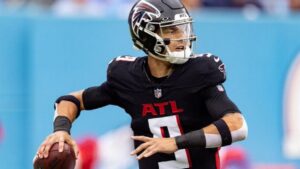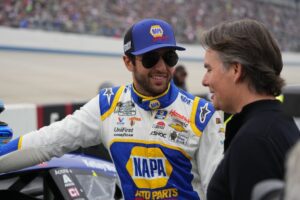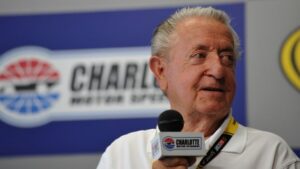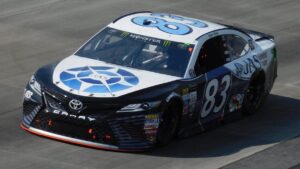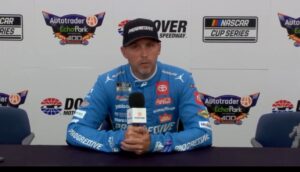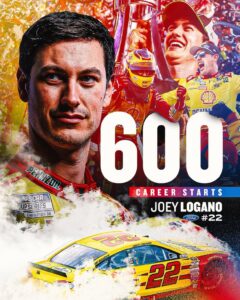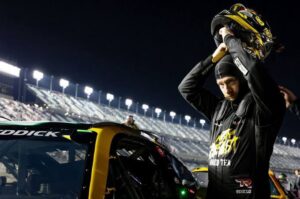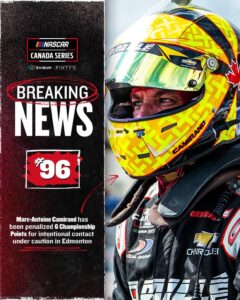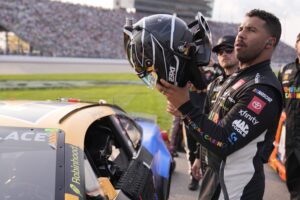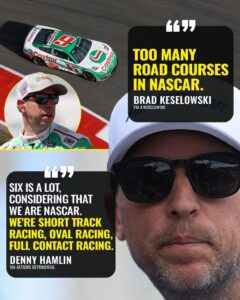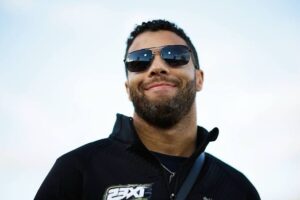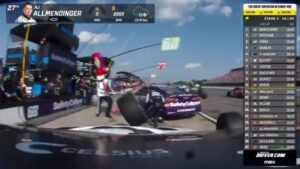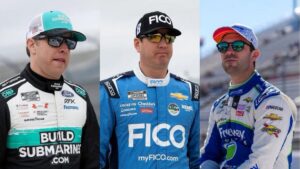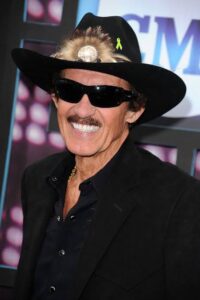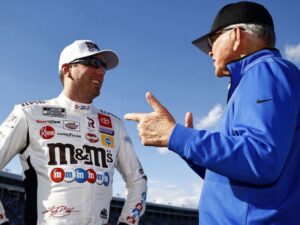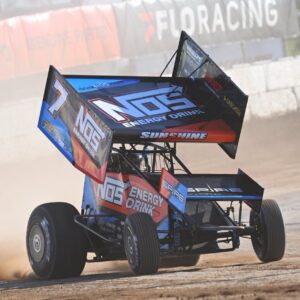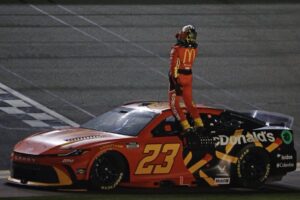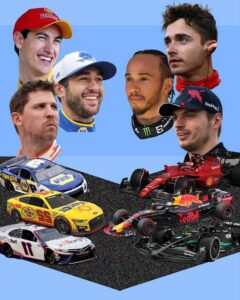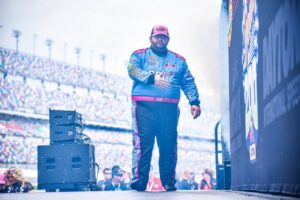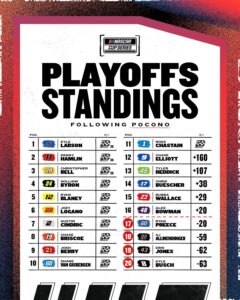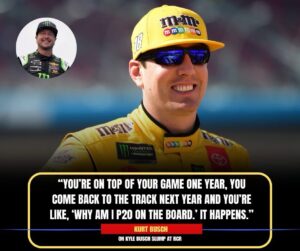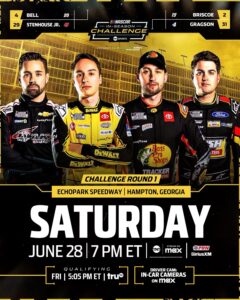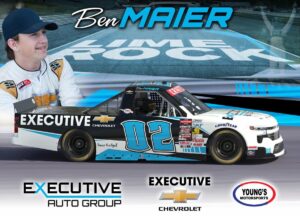The broadcast booth has long been an integral part of NASCAR, providing the sounds and stories that complement the roaring engines on track. Fans and insiders alike are often passionate about who they believe does the best job in calling races, and a recent debate has reignited the discussion: Which broadcasters truly bring NASCAR to life?
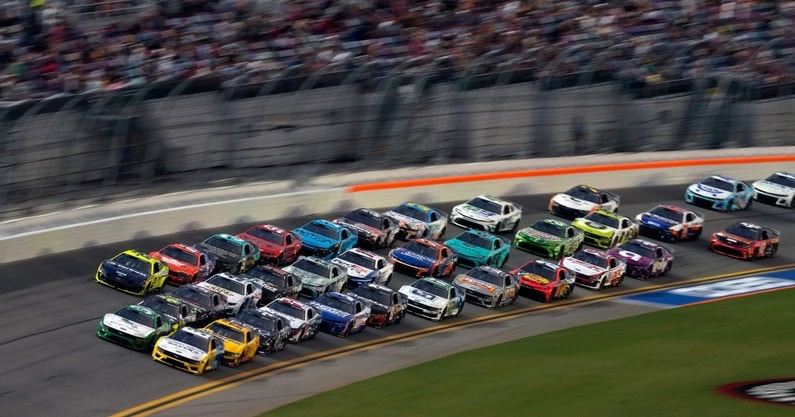
The Balance of Experience and Style
NASCAR broadcasts have always relied on a blend of seasoned announcers, former drivers, and crew chiefs to create the right mix of excitement, analysis, and storytelling. Today, broadcasters like Mike Joy, Rick Allen, Clint Bowyer, and Dale Earnhardt Jr. dominate the television landscape, but opinions on their strengths—and potential shortcomings—are divided.
Mike Joy, the veteran voice of FOX Sports, remains a favorite for many insiders and fans alike. With decades of experience, Joy’s calm and collected tone combined with his encyclopedic knowledge of NASCAR has earned him a reputation as the sport’s most reliable play-by-play voice.
“Mike Joy is the best storyteller in NASCAR,” said one industry insider. “He knows when to let the moment breathe, and when to add context that makes a race feel significant.”
On the other hand, NBC’s lead voice Rick Allen brings a more animated and energetic approach to the booth. Allen’s passion is evident, particularly during the closing laps of close races, though some fans argue that his style can feel too intense at times.
Driver Analysts: The Insider Edge
In recent years, broadcasters have increasingly turned to former drivers and crew chiefs for insight into the action. FOX and NBC’s use of these analysts has been widely praised, though opinions differ on who brings the most value.
Dale Earnhardt Jr., a cornerstone of NBC Sports’ broadcasts, is one of the most beloved figures in the booth. His relatable personality, deep knowledge, and ability to connect with fans have made him a standout. “Dale Jr. gives viewers the perspective of someone who’s been there,” one former crew chief said. “He speaks like a fan, but analyzes like a driver.”
On FOX, Clint Bowyer has carved out a niche as the fun, high-energy counterpart to Mike Joy. Bowyer’s charisma and humor often keep broadcasts lighthearted, though some feel his style can overshadow technical analysis. Meanwhile, Larry McReynolds, a longtime crew chief and FOX analyst, remains a respected voice for explaining strategy and pit road decisions.
The Role of Chemistry
While individual talent is important, insiders agree that chemistry among the broadcast team is what ultimately makes a race feel special. The pairing of Mike Joy, Clint Bowyer, and Jeff Gordon at FOX was praised for its dynamic, while Rick Allen, Dale Jr., Jeff Burton, and Steve Letarte at NBC bring a balance of energy, insight, and camaraderie.
“Broadcasting a race isn’t just about who knows the most,” one insider noted. “It’s about the way the team works together. You can tell when the guys in the booth are genuinely enjoying themselves, and that makes a difference for the audience.”
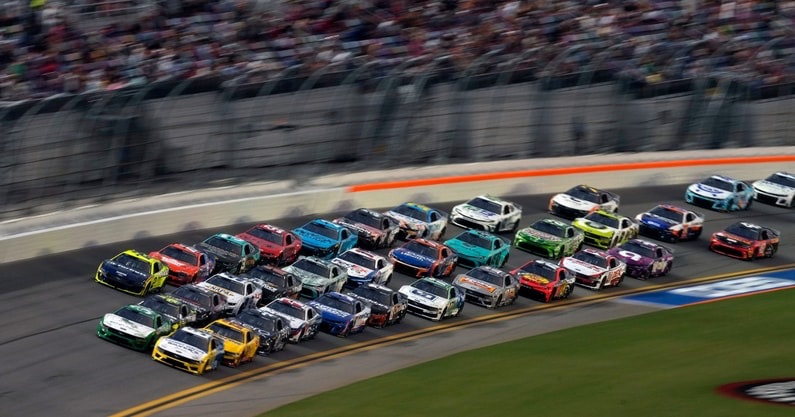
Fan Preferences and Future Changes
The debate over preferred broadcasters has also highlighted shifting fan preferences. Longtime viewers who grew up listening to icons like Ken Squier, Benny Parsons, and Ned Jarrett often lean toward traditional, storytelling-focused broadcasts. Newer fans, however, tend to gravitate toward the energy and entertainment provided by personalities like Bowyer and Dale Jr.
With FOX’s contract for NASCAR broadcasts running through 2024 and NBC carrying the second half of the season, insiders are also keeping an eye on how the networks might evolve their coverage. Will younger voices or new analysts be introduced to appeal to a broader audience?
The Verdict
At the heart of the debate lies a simple truth: NASCAR’s broadcast teams play a crucial role in enhancing the sport for fans. Whether it’s Mike Joy’s masterful calls, Dale Earnhardt Jr.’s insights, or Clint Bowyer’s humor, there’s no shortage of talented voices in the booth.
As the sport moves forward, insiders and fans alike will continue to argue over which broadcasters they prefer—because, just like on track, a little competition keeps things interesting.
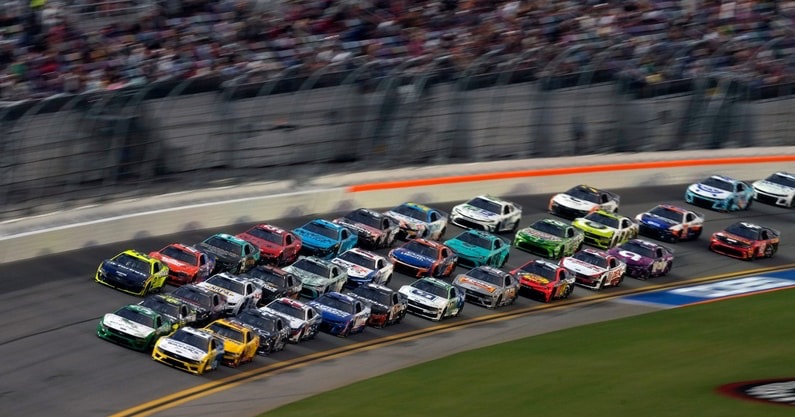
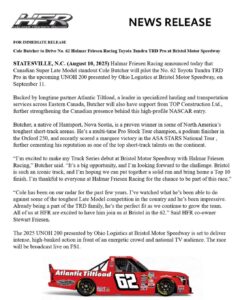

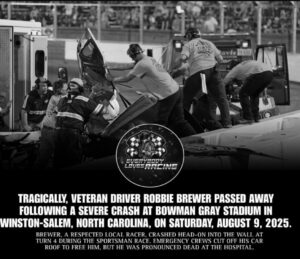




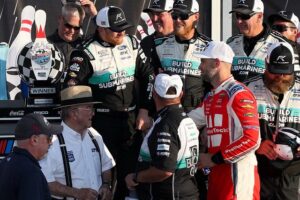
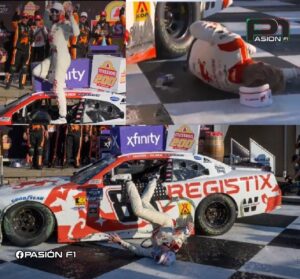




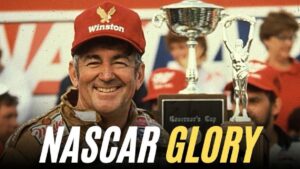

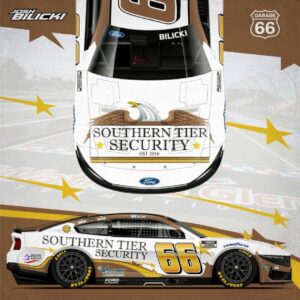




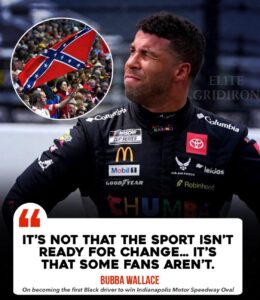

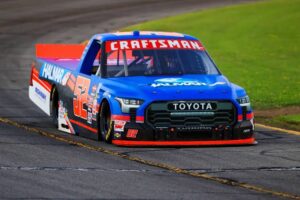
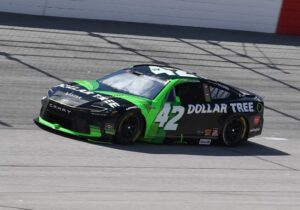






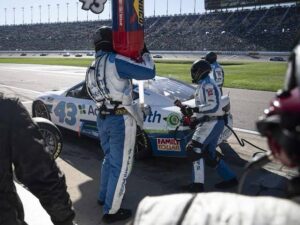
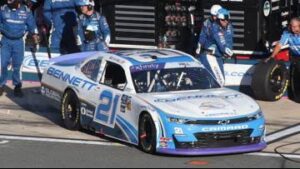

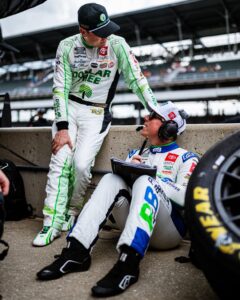




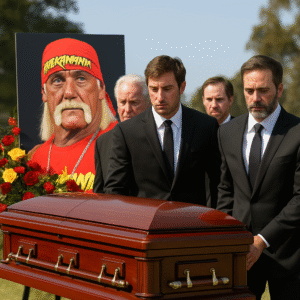
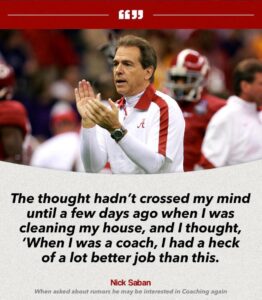
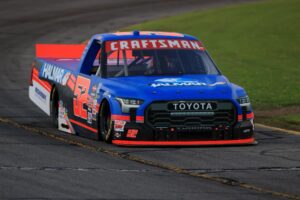


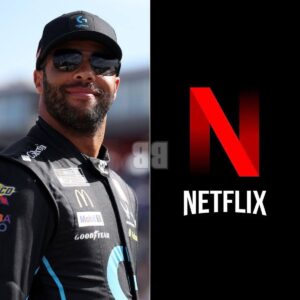




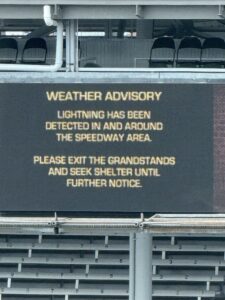
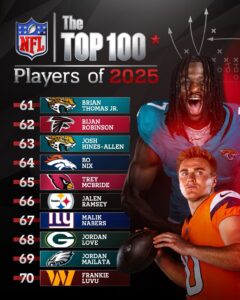


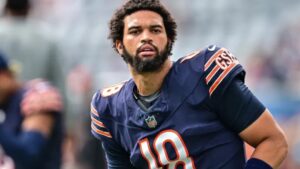
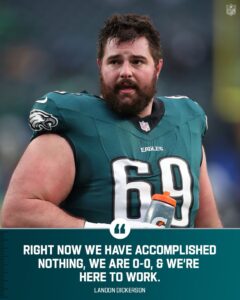
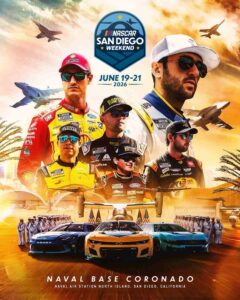
 From Battleships to Burnouts: NASCAR Set to Race at Naval Base Coronado
From Battleships to Burnouts: NASCAR Set to Race at Naval Base Coronado


